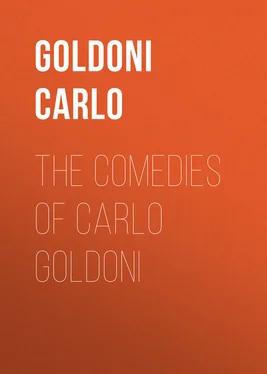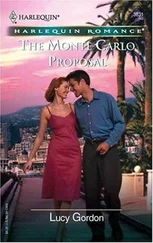Carlo Goldoni - The Comedies of Carlo Goldoni
Здесь есть возможность читать онлайн «Carlo Goldoni - The Comedies of Carlo Goldoni» — ознакомительный отрывок электронной книги совершенно бесплатно, а после прочтения отрывка купить полную версию. В некоторых случаях можно слушать аудио, скачать через торрент в формате fb2 и присутствует краткое содержание. Жанр: foreign_antique, foreign_prose, foreign_dramaturgy, на английском языке. Описание произведения, (предисловие) а так же отзывы посетителей доступны на портале библиотеки ЛибКат.
- Название:The Comedies of Carlo Goldoni
- Автор:
- Жанр:
- Год:неизвестен
- ISBN:нет данных
- Рейтинг книги:5 / 5. Голосов: 1
-
Избранное:Добавить в избранное
- Отзывы:
-
Ваша оценка:
- 100
- 1
- 2
- 3
- 4
- 5
The Comedies of Carlo Goldoni: краткое содержание, описание и аннотация
Предлагаем к чтению аннотацию, описание, краткое содержание или предисловие (зависит от того, что написал сам автор книги «The Comedies of Carlo Goldoni»). Если вы не нашли необходимую информацию о книге — напишите в комментариях, мы постараемся отыскать её.
The Comedies of Carlo Goldoni — читать онлайн ознакомительный отрывок
Ниже представлен текст книги, разбитый по страницам. Система сохранения места последней прочитанной страницы, позволяет с удобством читать онлайн бесплатно книгу «The Comedies of Carlo Goldoni», без необходимости каждый раз заново искать на чём Вы остановились. Поставьте закладку, и сможете в любой момент перейти на страницу, на которой закончили чтение.
Интервал:
Закладка:
So sad, so dark, so gloomy, was the end of that gay, bright spirit, Italy's greatest and most prolific comic author. To sum up his merits in a few words is no easy task. It is doubtful whether we should rank him among the geniuses of the world. On the plea of intelligence he certainly cannot claim this rank; his intellectual perceptions might even be called mediocre, as his Memoirs amply prove, but he had a gift, a certain knack of catching the exterior qualities of character and reproducing them in a skilful and amusing mode upon the boards. His art is not of the closet kind. What he put down he had seen, not elaborated from out his brain, and his own genial temperament gave it all an amiable impress. The turning-point of his comedies is always the characters of his personages. His plays are founded on that rather than on the artifice of a plot, which, as compared to the former, was held by him as of secondary importance. He distinguished between the comedy of plot and the comedy of character, and imposed the latter on the former, which he held the easier of the two. His mode was in direct contrast to that of the Spanish dramatists, then held in great vogue, who were masters at spinning plots, but whose characters were usually mere conventional types. In Goldoni, action results in most part as a consequence of the individuality of the personages depicted, and his intrigue is directed and led with the purpose that this may develop itself, more especially in the protagonist. Herein consists his great claim to being a theatrical reformer. What is to-day a commonplace was then a novelty. We moderns study character almost to exaggeration. In earlier drama it was ignored, and complicated plot absorbed its place. It was on this that Goldoni prided himself, and justly. It was he who first invented the Commedia del Carattere. Yet another of Goldoni's merits was his rare skill in handling many personages at the same time, without sacrificing their individuality or hindering the clear and rapid progress of the scene. This gift is specially manifest in "The Fan."
Roughly speaking, we may perhaps divide Goldoni's plays into three classes: Those that deal with Italian personages, and which are written in pure Italian, among which may be comprised those written in Martellian verse; those, including the largest number, which are written partly in Italian and partly in dialect; and finally, those written entirely in Venetian dialect, which are the fewest, eleven in all. From this it will be seen how unjust is the criticism of those who would look on Goldoni as merely a writer of comedies in a local dialect. It is this admixture of dialect, however, – and a racy, good-humoured, and amiable dialect it is, that Venetian, – which renders Goldoni's works so difficult, indeed impossible, to translate, especially into English, where dialects such as the Italian, which form quite distinct languages, are unknown. Happily, for we are thus saved much confusion of tongues, and we hence know no such schism between written and spoken language such as exists in Italy. Even in translation, however, much as Goldoni's plays suffer, their life and movement, their excellent dramatic action, and their marvellous play of character, are not lost. To understand, however, how eminently they are fitted for the boards, it is needful to see them acted. Those who have witnessed either Ristori, or her younger and more modern rival, Eleonora Duse, in "Pamela" or "La Locandiera," will not easily forget the dramatic treat. Goethe in his Italian journey, while at Venice relates how he witnessed a performance of "Le Barufe Chiozote," and how immensely he was struck with the stage knowledge possessed by Goldoni, and with his marvellous truth to the life that surged around him. "This author," writes Goethe, "merits great praise, who out of nothing at all has constructed an agreeable pastime." It has been objected by foreign critics that Goldoni's dialogue is sometimes a little dull and tame. Charles Lever, for example, could never be brought to find Goldoni amusing. It is, however, more than probable that a very accurate acquaintance with Italian is required to appreciate to the full the manner in which the plays are written, the way in which each person's conversation is made to fit his or her character. "La Donna di Garbo" (the title may be rendered as "A Woman of Tact") is a case in point. This young person seizes on the peculiar hobby or weakness of the people around her, and plays on it in her talk. Desirous, for weighty reasons, of becoming the wife of the young son of a great family, this "woman of tact" gets herself hired as a chambermaid in the household, and so pleases every member of it that all are in the end glad to assist her in gaining her cause. The extreme simplicity of Goldoni's plots is truly astonishing. None but a true adept in human nature and stage artifice could hold audiences, as he does, spell-bound with interest over such everyday occurrences as he selects. His comedies recall one of Louis Chardon's articles in Balzac's "Grand Homme de Province à Paris," beginning, " On entre, on sort, on se promène. " People go and come, talk and laugh, get up and sit down, and the story grows meanwhile so intensely interesting, that for the moment there seems nothing else in the world worthy of attention. And the secret of this? It lies in one word: Sympathy. Goldoni himself felt with his personages, and therefore his hearers must do the same.
Goldoni in his Memoirs gives no account of the production of "The Fan." It was written and first brought out in Paris, and soon became universally popular, especially in Venice. "The Curious Mishap" was founded on an episode of real life which happened in Holland, and was communicated to Goldoni as a good subject for a play. The dénouement is the same as in the real story, the details only are slightly altered. The intrigue is amusing, plausible, and happily conceived. The scene in which Monsieur Philibert endeavours to overcome the scruples of De la Cotterie and gives him his purse, is inimitable. Indeed, it is worthy of Molière; for if it has not his drollery and peculiar turn of expression, neither has it his exaggeration. There is no farce, nothing beyond what the situation of the parties renders natural. "The Beneficent Bear" was first written in French, and brought out at the time of the fêtes in honour of the marriage of Marie Antoinette and the Dauphin, afterwards Louis XVI. Played first in the city, and then before the court at Fontainebleau, it was immensely successful in both cases. For this play the writer received one hundred and fifty louis d'or. The published edition also brought him much money.
It was certainly a rare honour for a foreigner to have a play represented with such success in the fastidious French capital and in the language of Molière. He followed it with "L'Avaro Fastoso" ("The Ostentatious Miser"), also written in French. The fate of this drama was less happy, owing, however, to a mere accident, for which Goldoni was in no wise responsible. Nevertheless, he would not allow it to be represented a second time. He seems to have been discontented with it as a dramatic work, though it has qualities which bring it nearer to the modern French comédie de société than perhaps any other play he has left behind him. "It was born under an evil constellation," writes Goldoni, "and every one knows how fatal a sentence that is, especially in theatrical affairs." "The Father of the Family" is, according to Goldoni's own opinion, one of his best comedies; but, as he considers himself obliged to abide by the decision of the public, he can, he says, only place it in the second rank. It is intended to show the superiority of a domestic training for girls over a conventual one. "The aunt, to whom one of the daughters is consigned, figures allegorically as the convent," says the author, "that word being forbidden to be pronounced on the Italian stage." "Action and reaction are equal," says the axiom; and much, if not all, of the present irreverent attitude of Italians towards religious matters must be attributed to the excessive rigour, petty and despicable detail, of the regulations in vogue under their former priestly and priest-ridden rulers in these respects.
Читать дальшеИнтервал:
Закладка:
Похожие книги на «The Comedies of Carlo Goldoni»
Представляем Вашему вниманию похожие книги на «The Comedies of Carlo Goldoni» списком для выбора. Мы отобрали схожую по названию и смыслу литературу в надежде предоставить читателям больше вариантов отыскать новые, интересные, ещё непрочитанные произведения.
Обсуждение, отзывы о книге «The Comedies of Carlo Goldoni» и просто собственные мнения читателей. Оставьте ваши комментарии, напишите, что Вы думаете о произведении, его смысле или главных героях. Укажите что конкретно понравилось, а что нет, и почему Вы так считаете.












